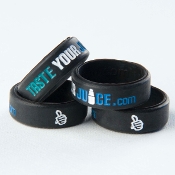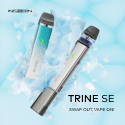
Federal District Court Rules Against FDA;
Vacates FDA’s 2017 Guidance Extending PMTA Deadlines
May 16, 2019
As you may have heard, yesterday the U.S. District Court for the District of Maryland issued a 54-page decision in American Academy of Physicians, et al. v. FDA, et al., Case No. 18-CV-00883, that may have a future impact on FDA’s compliance policy for deemed “new tobacco products” that were on the market on the August 8, 2016 effective date of the deeming rule. As explained below, however, there remain a number of procedural steps that must first occur (including potential appeals of the decision) before we will have a clear understanding of the actual impacts of this decision on industry. The case could result in significant changes to FDA’s compliance policy and deadlines for filing premarket submissions for deemed “new tobacco products” that were on the U.S. market on August 8, 2016. However, at this time, we do not view this development as having any immediate impact on industry’s ability to continue marketing such products. We will continue to update you on any important developments.
Background
On May 10, 2016, FDA issued a final rule deeming all products that meet the statutory definition of a tobacco product, except accessories of newly deemed tobacco products, to be subject to FDA’s tobacco product authority (Deeming Rule). In conjunction with the Deeming Rule, FDA announced a compliance policy for newly deemed products (e.g., cigars, pipe tobacco, e-cigarettes) that qualify as “new tobacco products” (i.e., products not commercially marketed in the United States as of February 15, 2007, or modified in any physical respect since) but that were on the U.S. market on the August 8, 2016, effective date of the Deeming Rule (Deemed Products).
The initial policy allowed the continued marketing of Deemed Products until staggered deadlines for filing premarket review submissions for them (and for up to one year thereafter during FDA’s review of such submissions) as follows:
- Substantial equivalence (SE) exemption requests were due 12 months after the effective date (8/8/2017);
- SE reports were due 18 months after the effective date (2/8/2018); and
- Premarket tobacco applications (PMTAs) were due 24 months after the effective date (8/8/2018).
In May 2017, FDA published a guidance document entitled “Three-Month Extension of Certain Tobacco Product Compliance Deadlines Related to the Final Deeming Rule” under which the Agency announced that it would extend by three months all future compliance dates for requirements under the Deeming Rule, including those for premarket submissions for Deemed Products. In July 2017, FDA announced a new comprehensive plan for tobacco and nicotine regulation intended, in part, to “ensure that the FDA has the proper scientific and regulatory foundation to efficiently and effectively implement the Family Smoking Prevention and Tobacco Control Act” and “[t]o make certain that the FDA is striking an appropriate balance between regulation and encouraging development of innovative tobacco products that may be less dangerous than cigarettes.” In order to reach these goals, FDA further extended the compliance dates for the filing of premarket submissions for Deemed Products to August 8, 2021, for combustible products and to August 8, 2022, for noncombustible products (August 2017 Compliance Policy). FDA also modified the compliance policy by permitting the continued marketing of a Deemed Product after the applicable deadline throughout FDA’s review of a timely filed submission.
In March 2018, a number of health groups, including the American Academy of Pediatrics and Campaign for Tobacco-Free Kids, as well as a handful of pediatricians, challenged FDA’s August 2017 Compliance Policy on the basis that it: (1) conflicts with the Tobacco Control Act, exceeds FDA’s statutory authority, and violates the Constitution’s Take Care clause because premarket review of new tobacco products is required under the statute; (2) was promulgated without notice and comment in violation of the Administrative Procedure Act (APA); and (3) was not the product of reasoned decision-making and is therefore arbitrary and capricious in violation of the APA.
On March 26, 2019, the District Court issued a Letter Order denying the parties’ motions without prejudice in light of FDA’s issuance of the March 2019 Draft Guidance proposing to revise the Compliance Policy. The court stated that because “the Draft Guidance, if finalized, will supplant the 2017 Guidance—the focus of Plaintiffs’ claims in this lawsuit—and perhaps necessitate an amendment to Plaintiffs’ Complaint, it is premature and would be neither efficient nor a wise allocation of resources to consider Plaintiffs’ Motion for Summary Judgment at this time, when the very guidance that Plaintiffs’ challenge is subject to possible imminent revision.” However, after the plaintiffs filed a Motion for Reconsideration, the court changed course and decided the case on the merits.
The Court’s May 15 Decision
On May 15, 2019, the District Court in American Academy of Pediatrics et al. v. FDA issued an order finding in favor of the plaintiffs and vacating the August 2017 Guidance. The court ordered: (1) plaintiffs to submit additional briefing regarding a remedy in fifteen pages or less within fourteen days; (2) defendants to respond in fifteen pages or less within fourteen days of the plaintiffs’ submission; and (3) plaintiffs to reply in ten pages or less within five business thereafter. With respect to the “remedy,” the court acknowledged that the application deadlines set in the Deeming Rule and the May 2017 Guidance have passed and states that “[a]ny Guidance providing for a compliance period will, of course, have to adhere to the notice and comment requirements of the APA [Administrative Procedure Act].” The court concludes: “. . . [I]n adopting new Guidance, [FDA] can propose that the deadlines can be set sufficiently soon beyond the end of the notice and comment period to afford relief to Plaintiffs and to attempt to combat the epidemic-level use of new tobacco products like e-cigarettes, especially by teenagers.”
Potential Impact of the May 15 Decision
It appears that the court misunderstood the underlying facts and both misunderstood and misapplied the applicable law. Based on our initial review, we believe there exists a reasonable likelihood of reversal should FDA appeal the decision. Importantly, because this decision goes to the heart of FDA’s authority to exercise enforcement discretion with respect to premarket review and other legal requirements—a tool FDA commonly uses in implementing the Federal Food, Drug, and Cosmetic Act across all categories of products within the agency’s jurisdiction, including drugs and medical devices—we anticipate that FDA will appeal this decision. Even if FDA does not appeal this decision, however, the court’s reference to the need to adhere to the notice and comment requirements of the APA in implementing the court’s order indicates that industry may still not need to file premarket submissions for Deemed Products for many months if not years. We will continue to monitor this case and update you on any significant developments.
Please let us know if you have any questions.

Tony Abboud
Executive Director














 Store
Store










